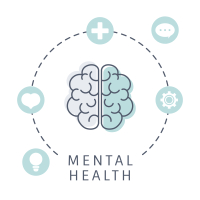
Why was this review important?
Mental health first aid is defined as 'the help provided to a person who is developing a mental health problem, experiencing a worsening of a mental health problem, or is in a mental health crisis' The first aid is given until appropriate professional help is received or the crisis resolves.' Mental Health First Aid (MHFA) is a training programme that aims to teach mental health first-aid strategies to members of the public. MHFA training works in a cascade model; accredited instructors deliver training to equip trainees with mental health first aid skills. Once trained, a trainee offers mental health first aid to people within their workplace, organisation, or community. MHFA training is designed to increase knowledge about mental health problems, and thereby reduce stigma often attached to these. Trainees learn how to provide immediate help to recipients and how to signpost to services.
Who will be interested in this review?
Individuals considering MHFA training
Employees and employers
Policy and decision-makers
What questions did this review try to answer?
What is the impact of Mental Health First Aid (MHFA) training on mental health and well-being, mental health service usage, and adverse effects in individuals within the community in which MHFA training is delivered?
Which studies were included in the review?
We searched for randomised controlled trials (clinical studies where people are randomly put into one of two or more treatment groups) that examined MHFA training published up to June 2023.
We included 21 studies with 22,604 participants.
What did the evidence from the review tell us?
The main outcome of interest was the effect of MHFA training on the mental health and well-being of individuals at a time point between six months and a year. We included three comparisons: MHFA versus no intervention; MHFA versus an alternative intervention designed to improve mental health literacy; and MHFA versus an active control, for example training in physical first aid. We only found very low-certainty evidence regarding this outcome, and it is not possible to draw any firm conclusions. The evidence we found only related to our comparison of MHFA with no intervention. We did not find any evidence relating to mental health service usage or adverse effects at the same time point.
What are the limitations of the evidence?
We are not confident in the evidence, firstly because there were problems in the way in which the research had been carried out which might bias their results. Secondly, there were variations in the results from different studies that we could not explain. Thirdly, because many studies did not include large number of participants, we were not able to obtain precise results that would tell us whether MHFA training was better than the interventions to which it was compared. The lack of evidence around adverse effects is a limitation, as we cannot assume that any type of intervention does not have the potential to cause harm.
What should happen next
Further research is needed to better understand the possible effects of MHFA.

